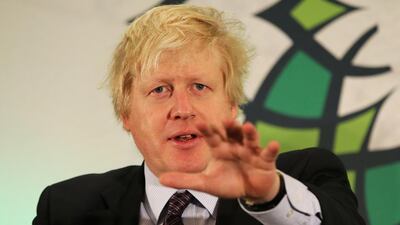I t was a curiously inflammatory question for London’s leading independent radio station to ask the voters of the United Kingdom’s famously cosmopolitan capital city.
Londoners go to the polls in May 2016 to decide who will be their next mayor. Would they, asked a YouGov poll carried out for LBC last week, be “comfortable” with a Muslim in the top job?
If the question was surprising, the answer was shocking: 31 per cent of respondents said they would not be comfortable.
It was also baffling. Both the Muslim candidates in the race have won the repeated support of London voters before.
British-born Syed Kamall’s father migrated to Britain from Guyana in the 1950s, working on the buses so his son could have a better life. It paid off. Since 2005, Mr Kamall has represented Londoners as a Conservative member of the European Parliament. So “comfortable” were Londoners with their Muslim MEP that only last year they re-elected him to Brussels for another term.
Sadiq Khan is a British-Pakistani human rights lawyer whose immigrant father also took to the wheel of a London bus to transform his family’s fortunes. In 2005, Mr Khan became the Labour member of parliament for Tooting in south London. He, too, was re-elected – twice, in 2010 and earlier this year.
Muslim communities have thrived in Britain for more than 200 years, when sailors from imperial outposts, including Yemen, first began settling in port towns. Britain’s first recorded mosque opened in one of them, Cardiff, in 1860.
According to the most recent census, by 2011 there were 2.7 million Muslims in the UK – 4.8 per cent of the population. In the words of the Muslim Council of Britain, Muslims are now “part of the social fabric of Britain’s plural society”.
British Muslims serve in significant numbers in all branches of the armed forces, hundreds more have won seats as councillors across the country and, in May, six new Muslim MPs were elected to the House of Commons, bringing the total to 13.
So why, less than a month after the current mayor, Boris Johnson, staged London’s 10th Eid Al Fitr festival in Trafalgar Square, the sudden queasiness at the prospect of his successor being a Muslim?
The average Briton’s faith in Islam has been steadily eroded – by the barbaric deeds of ISIL and Al Qaeda, yes, but especially by the actions of the enemies within, whose embrace of extremism, at home and abroad, has shocked and scared them: the July 7 bombings that killed 52 people in the capital a decade ago; the murder of soldier Lee Rigby on the streets of south-east London in 2013; the grotesque footage of “Jihadi John” beheading ISIL prisoners; the dozens of British Muslims who have sought to follow in his footsteps.
All this and more is threatening to sabotage the long and honourable history of the Muslim communities who have called Britain home for generations, and the cultural bridges built by high-profile individuals such as Mr Kamall and Mr Khan.
In the face of such home-grown horrors it is far too easy for average non-Muslim Britons to turn their backs on all Muslims, burn the bridges and consign all of the Islamic faith to the bin labelled “them”. That would, of course, be a terrible mistake, contributing to the alienation of young Muslims that has become the recruiting agent for ISIL.
Over the past weeks much has been said by British politicians about the need for the Muslim community to get its house in order in the battle against extremism. But compare and contrast prime minister David Cameron's bombastic attack on the "segregation" of Muslim communities at the launch of the government's counter-extremism strategy last month with the sad conclusion of the 7/7 Reflections report, published two weeks earlier, on the 10th anniversary of the London bombings.
A decade on, wrote Fiyaz Mughal, the founder of interfaith dialogue group Faith Matters, Britain’s Muslim communities, had been left “fragmented … feeling leaderless and growingly disenfranchised given the consistent negative media headlines”.
A sense of despair, he said, “has also descended on them around the pernicious extremism that is affecting young people in their midst, while politicians finger-point at Muslim communities”.
So what to do?
Simple, says mayoral candidate Sadiq Khan – Londoners should vote for me, or my fellow Muslim rival.
Self-serving? Possibly. But counterintuitive? Not at all.
Mr Khan is right. If, as he says, Londoners had “the confidence, tolerance and respect” to elect a Muslim mayor, it would indeed send a “phenomenal message … about our confidence [and] show the haters in Iraq and the haters in Syria what sort of country we are: a beacon”.
Faced with what Mr Cameron has described as the “struggle of our generation”, all Britons – and not just the 59 per cent who ticked the box marked “Christian” in the last census – badly need a guiding light right now.
If Britain is to convince its disenfranchised Muslim youth to believe in its rhetoric of tolerance and inclusivity, what better figurehead to carry that light aloft than the Muslim son of an immigrant bus driver? He is living proof that there is a home, a history and a future for Islam in British society.
Jonathan Gornall is a freelance journalist in the UK

